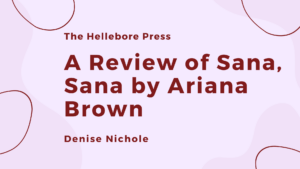Overview
Body Facts analyzes the generational cycles of racism, misogyny, and oppression that are endured by the body from adolescence to adulthood. Throughout this riveting collection, Joey Kim offers a striking portrayal of Korean identity through poems that attest to the historical legacies and traumas of the family and self.
The Electric Poise of Joey Kim
Joey Kim’s literary prowess is evident though her directness and clarity. Each poem decentralizes the white gaze, as readers become witness to a reality that is so often dismissed. Kim shatters the model minority myth by contextualizing the real lived hardships of Korean-Americans within schools and homes— states and countries. In turn, these places and histories inhabit the body. Kim maps out these terrains as the body becomes the keeper of ancestries, secrets, and long awaited truths.
Confronting Hate & Stereotypes
Asian Americans are targeted for their identities each day. At the height of the pandemic, former president, Donald Trump, sought to blame and punish an entire population of people for COVID resulting in increased hate crimes towards the Asian community. During his presidency, Trump fueled a mentality of us vs them. Enemies of the US were portrayed as other and anti-American. The division within our nation became evident through estranged relationships, heightened tensions between political parties, and hostile sentiments towards distant countries and peoples.
Kim combats these policies and attitudes in the poem, Denaturalized:
The history of our family’s “country” began during Reaganomics,
and, by the way they look at us, we must be harboring some secret at every
security checkpoint, government bureau, voting booth, and coronavirus testing station.“Wealth”…”We’re getting it back so fast,” Trump continues,
from, “Denaturalized”
so far that we will reach the wealth of those filthy rich Asians
and
“the depraved character of the North Korean regime”
“that got us into this very dangerous position.”
Here we see how words are weaponized against the most vulnerable. The statement “filthy rich Asians” is not subtle or discreet. Trump believes that such wealth is obscene and not rightfully earned or gained. Trump criminalizes an entire nation of people as well as their descendants because of the “depraved character of the North Korean regime”. Yet, fails to acknowledge the oppression of North Korean citizens through state sanctioned loyalties and penalties.
Trump dictates the parameters of goodness, fairness, and entitlement in accordance with Americanness and whiteness. Kim deconstructs these harmful notions with sheer elegance and grace. Not for those who perpetuate racism and hate, but for those who must compromise and sacrifice their identities and homelands in order to exist within the confines of a new and often unobtainable citizenship.
Whiteness is rooted in sameness and oneness. To be a person of color stands in direct opposition to the state, because our cultural and communal ties must be broken in order to assimilate into another identity.
Borrowed Language
Language is an extension of our being but is all the more complicated by our various identities. Kim questions the function of language throughout the poem Currency:
How do you spend one language and save
from, “Currency”
another?
How do you record this language borne of
hastily name passengers of
a paper
voyage?
Throughout this exchange be it cultural, physical, spiritual, or textual—what is lost? What is borrowed? What is bought? What is buried? What is broken? How do we reconcile with all that we must compromise in order to survive? What must we leave behind?
The poem, My Mother’s Mother leans into these complexities:
Language severed us
from, “My Mother’s Mother”
severed a line—beeps, alerts, alarms,
telephone wires crossed—
Within this poem, language represents the barrier between two lands: Korea & Japan and two generations: grandmother or halmoni and granddaughter.
Femininity and Beauty
Body Facts challenges beauty standards within the poems, Plunder and China Doll Sacrifice. In Plunder, Kim uncovers the unnerving practices and procedures of Dr. Milliard, “the celebrated American plastic surgeon who brought his double eyelid surgery to Korea”. By weaving quotes from his essay against the backdrop of war and American life, Kim is able to reclaim Korean identity from those who seek “to plunder our body facts”.
China Doll Sacrifice reveals the emotional and physical toll of Americanized standards of beauty:
She was told to suck in,
from, “China Doll Sacrifice”
act weak for the boys,
sashay, smile, giggle, and hold
her tongue.
China Doll Sacrifice shifts dramatically in terms of tone and content since it disrupts and dispels all expectations. Within this poem the psychological burdens and traumas of racism and misogyny manifest through binge eating and bulimia. Conversations about mental health still continue to be avoided in communities of color. Yet Joey Kim is unrelenting in her efforts to bring these conversations to the forefront. That determination must be applauded.
Notions of beauty continue to be rooted in whiteness or proximity to whiteness. For women of color, that isolation and separation can be emotionally exhausting. What parts of us must become unrecognizable in order to assimilate? What must we endure to be desirable and loved? Throughout Body Facts, the speaker echoes, “beauty makes lonely” which encompasses multiple meanings. Beauty makes lonely in heartbreak and loss. Beauty makes lonely in grief. Beauty makes lonely in the longing, waiting, and hoping. Beauty makes lonely.
Family and Heritage
Though Body Facts grapples with oppression, capitalism, and injustice, there are moments of hope and light. Umma (Mom) and Appa (Dad) are genuine odes to family. A Sijo Prayer warms the heart and spirit. These bonds become testaments that endure and inspire.
Conclusion
Joey Kim reveals the isolating nature of the body in relation to colonization, beauty, and femininity. Throughout Body Facts, Kim reminds us of the power of shared experiences through a kinship that transcends borders.
From the Publisher’s Website:
Joey S. Kim is a scholar, creative writer, and Assistant Professor of English at the University of Toledo. Her poetry ventures through Korean history, the feminine body, U.S. foreign policy, and coming-of-age in midwestern America. She researches nineteenth-century global Anglophone literature and poetics. Her work has been published in the Los Angeles Review of Books, Pleiades: Literature in Context, Burningword Literary Journal, Essays in Romanticism, and elsewhere. She is a 2020 Pushcart Prize nominee for her poem “Plunder,” a poem forthcoming in her debut chapbook of poems, Body Facts, and first published in Pleiades.
Twitter: @JoeyKim
To purchase Body Facts check out Diode Editions.
Read a selection of poems from Body Facts on The Hellebore.


